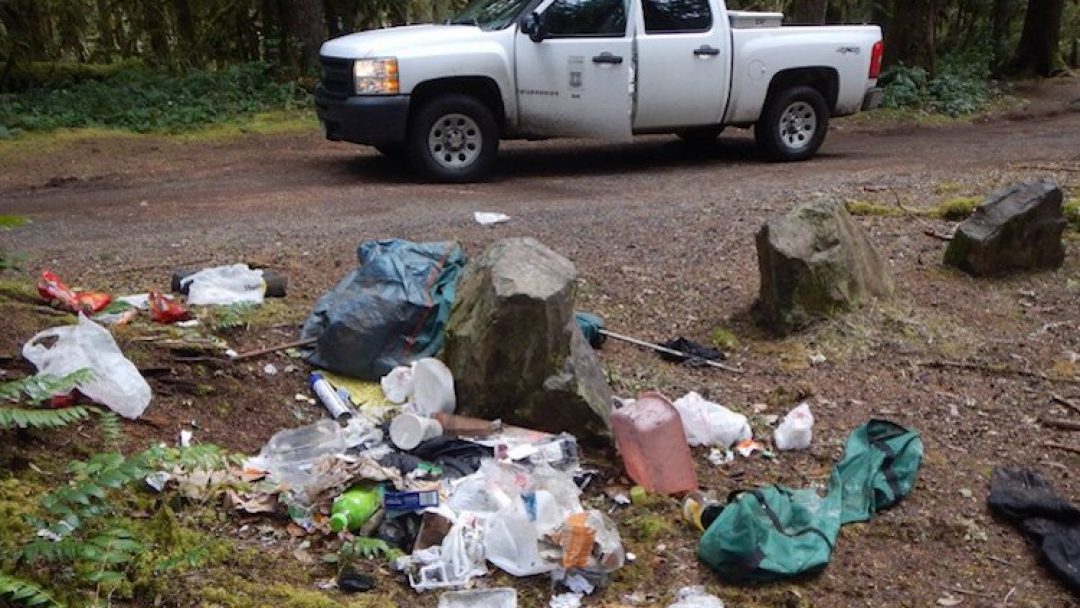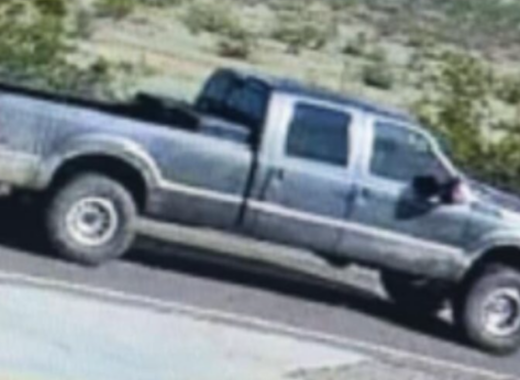Every year, national forests in Arizona deal with trash being dumped and left behind by members of the public and irresponsible campers, and this problem continues to be widespread and increasing across Coconino National Forest.
Forest Service personnel are encountering garbage piles stacked up along forest roads—some even right in front of large signs that state there is no garbage service and to take your trash with you. When one person leaves their garbage bag behind, it attracts others to leave theirs—resulting in trash bags stacked up, making the national forest look like a dump site.
Leaving your garbage behind creates an array of problems. Not only are these dump sites visually obtrusive, they often contain materials that may not decompose naturally in our lifetime. Protection of wildlife habitat and groundwater quality is also at stake. The groundwater that originates in northern Arizona national forests is the same groundwater that supplies water to areas such as Phoenix. One trade-off is Forest Service employees and volunteers are having to redirect some of their time to pick up garbage at the expense of other important programs for the forest and community.
CCNF says Forest Service employees and volunteers are having to redirect their time to pick up the garbage instead of focusing on other important programs in the forest and their community.
“Disappointingly, the national forest will continue to look like a dump site, as the Forest Service does not have enough personnel to provide garbage services over the 1.8 million acres that comprises Coconino National Forest,” the Forest Service said in a release. “With violators often returning to the national forest time and again, leaving their garbage behind, your national forest is becoming a landfill.
The Forest Service is asking that all visitors help take care of our national forest and heritage, especially as Memorial Day weekend approaches. Practice Leave No Trace ethics, and take your trash with you after you’ve enjoyed camping or visiting the national forest. Though violations are punishable up to $5,000 and/or six months in jail, unfortunately violators often get away with trashing the forest. The Forest Service would like residents to know that this is not a forest service problem. This is a public problem—and one simple action of packing out what you pack in can solve it.
The Coconino County National Forest says Forest Service workers are constantly finding piles of garbage bags stacked up on the side of roads and around campgrounds.
Coconino County says this is an issue every year, but this year it is more widespread and continues to increase as traffic to the area spikes.
Sadly, Coconino County isn’t the only area having an issue with people who aren’t responsible. The Apache-Sitgreaves National Forests seeing the same piles of garbage left behind in its popular areas, released a similar call for help action recently.
Leave No Trace offers 10 ways to lower your impact to camping and forest areas when visiting:
- Swap a case of plastic water bottles or a plastic jug of water for a refillable water container and reusable bottle
- Switch from plastic straws to reusable straws
- Instead of paper plates and plastic utensils, use a cool set of camp dishes
- Ditch plastic tablecloths, paper towels, and paper napkins for reusable and washable versions
- Reuse containers for trash bins – Ice bags and snack containers make great trash cans when emptied
- Repackage food into reusable containers before you head out
- Avoid buying and bringing food with unnecessary packaging
- Use a smaller trash receptacle – By using a smaller trash bag, or better yet a reusable Deuter Dirtbag, we can be more aware of the amount of trash we create
- Rather than discardable single use propane tanks, use a larger refillable tank for stove fuel
- Keep a separate bag for recyclables and pack it out if not available where camping








